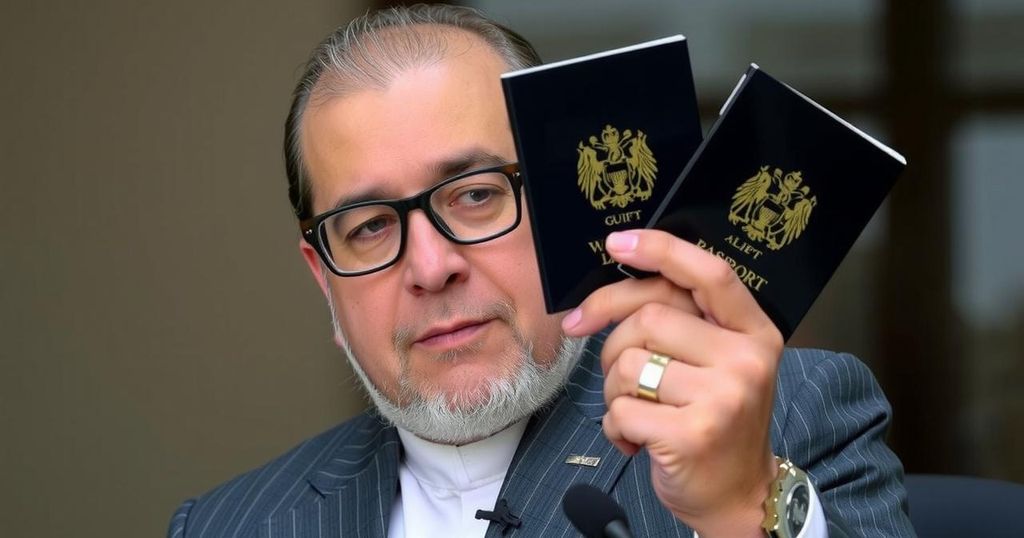An investigation by Bloomberg disclosed that Hossein Shamkhani used Dominican and EU passports to evade sanctions related to his alleged involvement in Iran’s arms trade. Through Dominica’s Citizenship by Investment program, he gained access to financial institutions, enabling the expansion of his business operations despite his controversial background. This case exemplifies the challenges of regulatory compliance in the financial sector concerning politically exposed persons.
A recent Bloomberg investigation revealed that Hossein Shamkhani, the son of a former Iranian national security chief, circumvented international sanctions by acquiring Dominican and European Union (EU) passports. This maneuver allowed him and his associates access to global financial systems. Shamkhani initially secured Dominican citizenship through the Caribbean nation’s Citizenship by Investment (CBI) program, which has attracted international investments and provided an alternative nationality for individuals facing scrutiny in the financial sector. Utilizing these Dominican passports, they subsequently procured EU passports, thereby evading regulatory compliance checks from major banks and financial institutions. This strategy facilitated the establishment and expansion of Shamkhani’s business ventures amidst concerns over his alleged links to Iranian arms dealings with Russia.
The investigation highlighted that Shamkhani, after educational stints in Moscow and Beirut, returned to Iran and founded Admiral Group under the encouragement of his father, a significant figure in Iran’s military and political landscape. While seeking to utilize Dubai as a business hub, his political exposure and connections made it challenging for him to engage with large financial institutions. Dominica’s flexible CBI program appeared to offer an effective solution, enabling Shamkhani and others to easily obtain citizenship without a physical presence in the country.
Reportedly, the CBI initiative has generated substantial revenue for Dominica, reflecting a broader pattern wherein individuals with potential red flags in their backgrounds successfully acquire new nationalities. Documents obtained by Bloomberg confirmed that Shamkhani and his close associates possibly modified their identities legally through the island’s Deed Poll framework, further obfuscating their Iranian origins. The acquired Dominican identification allowed Shamkhani’s network to secure additional EU passports, thus facilitating smoother compliance assessments from major international banks. Other Iranian nationals linked to Shamkhani, who also obtained Dominican citizenship, have seen their careers flourish under this strategic circumvention of obstacles in international banking.
The investigation sheds light on the Citizenship by Investment (CBI) programs utilized by individuals under scrutiny for their political and economic affiliations. The case of Hossein Shamkhani illustrates how such programs can provide pathways for persons facing sanctions to engage more freely in global financial markets. By granting citizenship without the necessity of residency, these programs have attracted foreign investment while simultaneously offering alternatives for individuals seeking to evade regulatory complications due to their nationalities or political associations. In recent years, there has been growing concern among regulators regarding the implications of CBI initiatives on global financial integrity, particularly when associated with politically exposed persons like Shamkhani.
The investigation presents a compelling case concerning the intertwining of citizenship acquisition and international finance. Hossein Shamkhani’s use of Dominican and EU passports to navigate sanctions highlights the potential issues surrounding CBI programs, which may inadvertently facilitate the international movement of politically exposed individuals with contentious backgrounds. The ramifications of such actions raise critical questions regarding the effectiveness of due diligence practices within global banking systems, particularly as they relate to maintaining investment and financial security across borders.
Original Source: whistleblower.org






